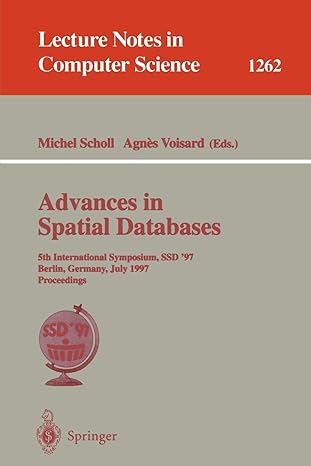Question
1 Convert the following decimal numbers to 10-bit unsigned binary numbers. Show your work. (a) 144510 (b) 6310 2 Convert each of the following octal
1 Convert the following decimal numbers to 10-bit unsigned binary numbers. Show your work.
(a) 144510 (b) 6310
2 Convert each of the following octal numbers to 10-bit binary, hexadecimal, and decimal. Show your work.
(a) 368
(b) 7568
3 Convert the following binary values into Decimal, Octal and hexadecimal. Show your work.
(a) 111010101011112
(b) 1010111011001102
(c) 1011101010001112
(d) 1111101011102
4 Convert the following hexadecimal numbers to 16-bit binary and decimal numbers. Show your work.
(a) FE9816
(b) FCAD16
(c) B00C16
(d) FEDF16
5 Perform the addition on the following unsigned binary numbers. Indicate whether or not the sum overflows an 8-bit result. Show your work.
(a) 100110012 + 010001002
(b) 110100102 + 101101102.
Convert this floating point number in IEEE format to a real number. Show your work. 4070000016 10.
6 Convert the following decimal numbers to 16-bit signed binary numbers. Show your work.
(a) -8910
(b) -1510
Subject: Microcontroller Programming
Note- Please i need detailed solution to this problem. Please show me step by step on how to got the answers to each one of the problems
Thanks
Step by Step Solution
There are 3 Steps involved in it
Step: 1

Get Instant Access to Expert-Tailored Solutions
See step-by-step solutions with expert insights and AI powered tools for academic success
Step: 2

Step: 3

Ace Your Homework with AI
Get the answers you need in no time with our AI-driven, step-by-step assistance
Get Started


